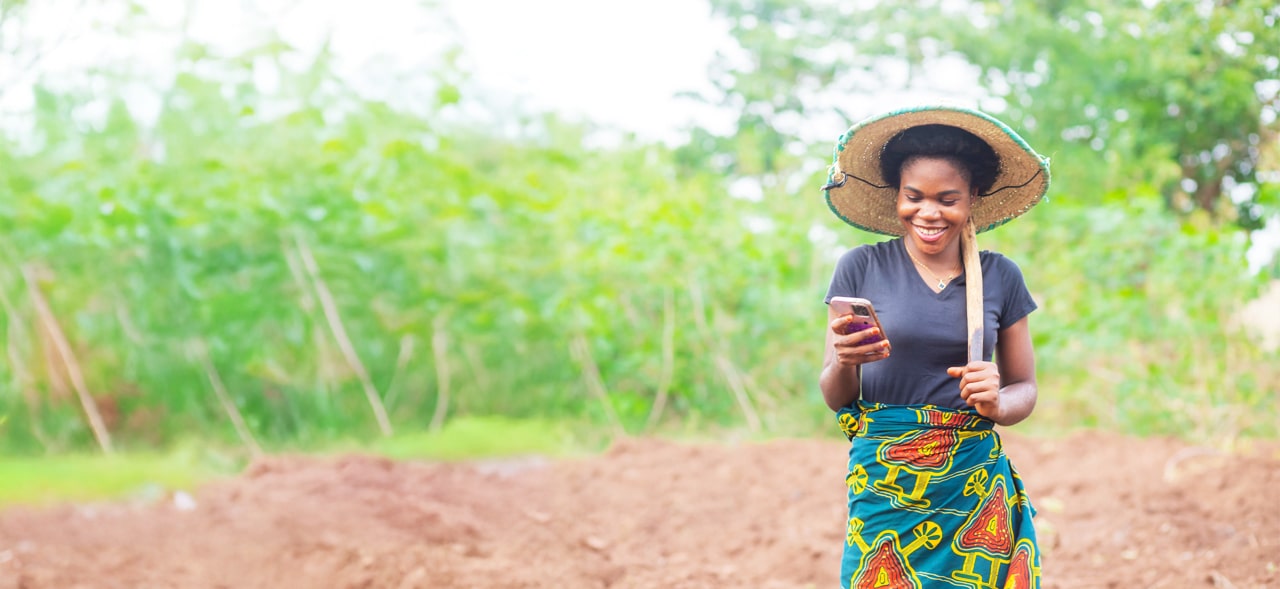Rural entrepreneurs, especially women in Self-Help Groups (SHGs), face significant challenges in accessing credit due to the absence of a formal credit history. To bridge this gap, MSC initiated the Grameen Credit Bureau project in Bihar. The initiative intended to develop a comprehensive credit database covering over 10 million SHG members, streamlining access to formal financial services for rural women.
MSC led the design and implementation of an integrated digital data repository that captures both financial and non-financial data of SHG members. We collaborated with JEEViKA, public sector banks, and credit bureaus like CRIF High Mark to define data points, ensure data quality, and generate reliable credit reports. Our efforts focused on eliminating risks and biases from data misinterpretation and facilitating a data-driven approach to credit assessment.
Once implemented, the Grameen Credit Bureau Score is expected to significantly improve the assessment of creditworthiness among rural SHG women, facilitating their access to a broader range of financial products beyond the traditional SHG structure. It will promote greater transparency in SHG transactions and repayment histories and pave the way for their integration into the formal financial ecosystem.
The Gates Foundation commissioned the project.
Self-Help Groups (SHGs) in Uttarakhand struggle to access and utilize Cash Credit Loans (CCL), with more than 60% of allocated funds remaining unused due to a lack of awareness and unclear documentation. Also, issues such as poor with bank officials and SHGs, high stamp duty charges, and limited understanding of the NRLM MIS portal hinder loan disbursement to SHGs and the uptake of benefits. To resolve this, MSC provided technical assistance to Uttarakhand State Rural Livelihood Mission (USRLM) in strengthening SHG-bank linkages.
MSC conducted awareness and capacity building camps with SHGs to address knowledge gaps, facilitated coordination with SRLM teams, and worked with banks to simplify processes and resolve documentation-related challenges. Through the collaborative efforts of MSC and USRLM, the SHG Bank Linkage program has achieved notable progress across key focus areas—namely, Cash Credit Limit (CCL) uptake, interest subvention implementation, and NPA management.
Between March 2023 and April 2025, the proportion of SHGs linked to banks increased from 55% to 68%, while loan utilization more than doubled, rising from USD 19 million to USD 39 million. The initiative to improve access to subsidized interest rates has been effective, with the percentage of SHGs charged higher interest rates dropping significantly from 52% in March 2023 to 11% in April 2025. Moreover, the Non-Performing Assets (NPA) rate declined from 4% to below 2%, indicating strengthened financial discipline and improved credit portfolio quality.
The Gates Foundation commissioned the project.
The Self-Help Group (SHG) model has played a key role in advancing financial inclusion for women in India. However, most SHG programs have struggled to achieve the broader goals of women’s empowerment. Most women in rural India still lack access to financial services such as the social security scheme. A key barrier has been low awareness of the security scheme, its benefits, complex policy processes, and confusing documentation and implementation procedures. To address these challenges, a targeted initiative was launched by MSC to enhance awareness and simplify access to government-backed social security schemes, including the Pradhan Mantri Suraksha Bima Yojana (PMSBY) and the Pradhan Mantri Jeevan Jyoti Bima Yojana (PMJJBY).
This initiative aimed to help SHG members, particularly women in rural areas, better protect themselves and their families through improved social security coverage.
MSC led a multifaceted intervention that combined systems innovation, policy simplification, and grassroots-level engagement to boost social security uptake among SHG members. Recognizing that low awareness and complex procedures were major barriers, MSC developed and institutionalized Standard Operating Procedures (SOPs) in collaboration with government stakeholders to streamline policy implementation. It focused on claim settlements under PMSBY and PMJJBY. To ensure last-mile impact, MSC designed and rolled out hyper-local communication strategies, including vernacular audiovisual tools and community-based outreach through SHG networks. These tools were tailored to address behavioral barriers and explain complex insurance concepts clearly.
The initiative resulted in a significant increase in the uptake of social security schemes, with over 13 million SHG members in Uttarakhand, Uttar Pradesh, and Odisha enrolling. This greatly enhanced their financial security and overall well-being.
The Gates Foundation commissioned the project.
Cluster-Level Federations (CLFs) are community-based institutions under the National Rural Livelihoods Mission (NRLM) that bring together multiple Self-Help Groups (SHGs) within a geographic area. These federations play a central role in managing and distributing Community Investment Funds (CIF)—a critical source of low-cost capital for SHG members. However, the current fund management processes at CLFs are challenged due to inefficiency, lack of transparency, and limited alignment with the evolving credit needs of SHG members. To address these issues, a strategic initiative was launched to optimize the management and delivery of community funds and support the transformation of CLFs into robust Micro-Credit Institutions (MCIs) capable of delivering need-based and timely financial services to rural women.
MSC is supporting the NRLM to enhance the effectiveness, efficiency, and relevance of community fund mechanisms. MSC’s interventions include streamlining operational processes across Community-Based Organizations (CBOs) to improve fund management and utilization and deploying digital lending systems to boost transparency and efficiency in disbursement and monitoring. The team is also optimizing the allocation of Community Funds at the CLF level to promote equitable and impactful use, while designing need-based financial products to better serve the diverse credit requirements of SHG members.
The initiative is set to transform CLFs into agile, community-led micro-credit institutions that can effectively meet the growing and varied financial needs of SHG members. The project will strengthen fund governance, digitize lending processes, and offer tailored financial solutions. This will significantly enhance the accessibility, reliability, and impact of community financing across rural India—ultimately supporting sustainable rural livelihoods and inclusive financial growth.
The Gates Foundation commissioned the project.

Youth- and women-led MSMEs in Uganda continue to face structural challenges.This includes limited access to finance, high costs of digital devices, and low levels of digital literacy, which hinder their growth and participation in the digital economy. To address these barriers, the United Nations Capital Development Fund (UNCDF), under its FinWise program, commissioned a market systems assessment to explore pathways to enhance digital and financial inclusion for youth-led MSMEs, in line with Uganda’s National Development Plan III.
MSC conducted the assessment, applying a multi-method research approach. The team led extensive desk reviews and fieldwork, which included 48 focus group discussions with MSME owners across sectors and 30 key informant interviews with stakeholders such as financial institutions, regulators, and policymakers. We analyzed the current digital transformation status of MSMEs, identified key barriers and gaps, and developed practical recommendations to address financing challenges, particularly related to digital devices and credit access. MSC also facilitated a validation workshop and shared findings with stakeholders to inform future interventions.
The assignment is expected to shape UNCDF’s technical assistance programs and provide practical insights for ecosystem players to unlock affordable device financing, improve digital access, and support youth-led business transformation. It ultimately aims to accelerate inclusive digital finance and contribute to economic resilience among young entrepreneurs in Uganda.
The United Nations Capital Development Fund (UNCDF) funded this project.

Juhudi Kilimo Limited (JKL), which serves over 90,000+ clients across 33 counties in Kenya—35% of whom are youth—sought to enhance its financial offerings for young people engaged in agriculture. It recognized the untapped potential of this demographic and intended to improve financial inclusion for youth and expand its footprint in the agri-finance market.
MSC provided technical assistance.We began with a diagnostic assessment that included rural household surveys and market research focused on youth needs. Based on the findings, MSC developed new product prototypes, refined existing products, updated credit manuals and appraisal tools, and trained JKL staff—including young managers—on product delivery. A pilot phase tested the new solutions, after which MSC supported product adjustments, marketing material development, and rollout planning.
The project is expected to significantly improve access to tailored financial solutions for youth in agriculture, which enabled them to invest in their ventures, increase productivity, and enhance their livelihoods. For JKL, the initiative strengthens its position in the agricultural finance sector and supports long-term growth and sustainability.
Incofin Investment Management funded the project.

